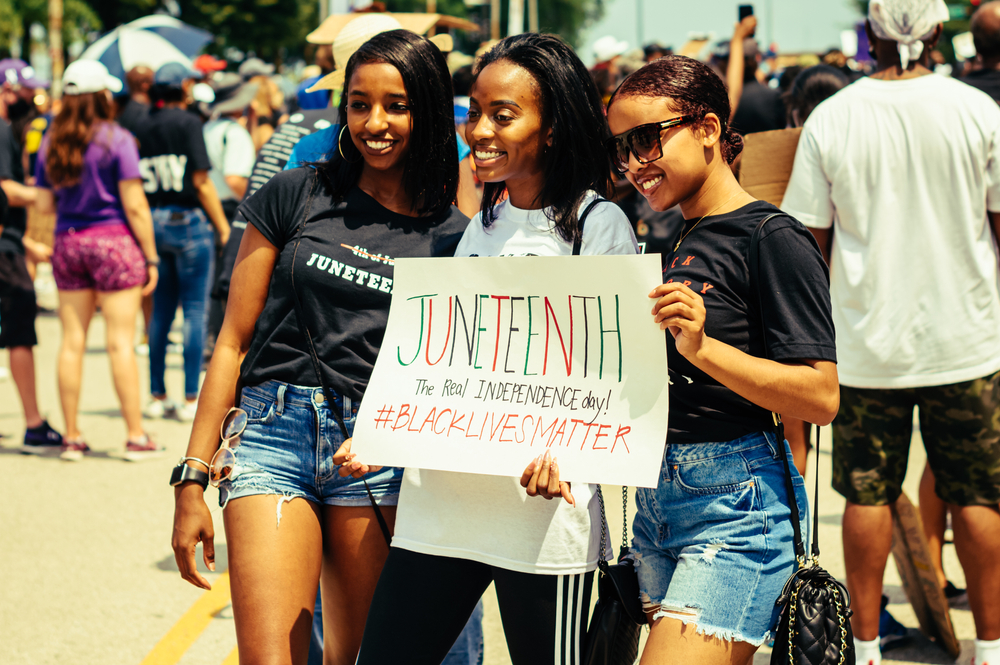Sunday, June 19th, is Juneteenth, commemorating the end of slavery in the United States. The holiday dates back to June 19th, 1865, when Union soldiers landed at Galveston, Texas, with news that the war had ended and that slaves were now free. It was two and a half years after President Lincoln’s Emancipation Proclamation — and two months after the end of the Civil War.
Juneteenth has taken on a new resonance in the fight for racial equity following last summer’s Black Lives Matter protests against racial injustice and police brutality, when millions took to the streets in response to the murder of George Floyd and the deaths of Breonna Taylor, Ahmaud Arbery, and other Black Americans.
Celebrated by African Americans since the late 1800s, Juneteenth is now acknowledged as a holiday by state governments across the country. Many companies have declared Juneteenth a holiday and are giving employees a paid day off on Monday, June 20th.
Here are 10 resources to help you learn more about Juneteenth and take action in your community or workplace.
A look at the political and cultural history of the oldest nationally celebrated commemoration of the end of slavery in the U.S., from Hella Creative.
Life After Slavery for African Americans
The Khan Academy explains what life was like for Black people after emancipation — how many of the worst brutalities and indignities of slavery were gone, but widespread prejudice and inequities persisted. The article also explores how family life, church, and schools became crucial centers of Black life after slavery.
10 Little Known Black History Facts
This insightful piece from PBS highlights notable events, individuals, and facts that have been largely overlooked in mainstream media and storytelling. Did you know, for example, that inoculation was first introduced to America in the early 18th century by a slave named Onesimus? Or that, in 1921, Bessie Coleman became the first licensed African American female pilot?
The New York Times Magazine launched “The 1619 Project” in 2019 with the goal of reframing America’s history through the lens of slavery, marking the year when the first enslaved Africans arrived on Virginia soil. The Pulitzer Prize-winning project has launched a nationwide conversation — and stirred controversy — about the founding of America and the stories we tell ourselves.
Compiled by Ibram X. Kendi, director of the Antiracist Research & Policy Center at American University, this comprehensive selection of books featured in The New York Times ranges from landmark works of fiction to explorations of Black politics, culture, and feminism. As Kendi writes, “By not running from books that pain us, we can allow them to transform us.”
“Brené Brown with Ibram X. Kendi: How to Be an Antiracist”
In this illuminating podcast, Ibram X. Kendi talks to the author and host Brené Brown about how we can all work toward overcoming America’s racist heritage.
“The History and Meaning of Juneteenth”
In this episode of the New York Times’ podcast “The Daily,” historian Dr. Daina Ramey Berry speaks about the jubilation Black people experienced on June 19th, 1865, while explaining how their lives continued to be severely restricted. The episode also examines why Juneteenth has gained prominence at moments of pain in the struggle for Black liberation and asks: What does freedom mean now?
This Netflix documentary from acclaimed filmmaker Ava DuVernay examines mass incarceration and the prison boom in the U.S. Scholars, activists, and politicians analyze the criminalization of African Americans and its connection to the devastating legacy of slavery.
Want to get involved? Here, Hella Creative details simple ways that you can take action, from volunteering your time to investing in Black businesses.
168 Ways to Donate in Support of Black Lives and Communities of Color
If you are interested in giving back and making a difference on Juneteenth, here’s an excellent guide from New York Magazine‘s The Strategist to help you decide where to spend your money. You’ll find details of organizations that will be grateful for your donations, ranging from memorial funds (for the victims of police brutality) to community restoration, economic development, and youth programs.
Follow us here and subscribe here for all the latest news on how you can keep Thriving.Stay up to date or catch-up on all our podcasts with Arianna Huffington here.


